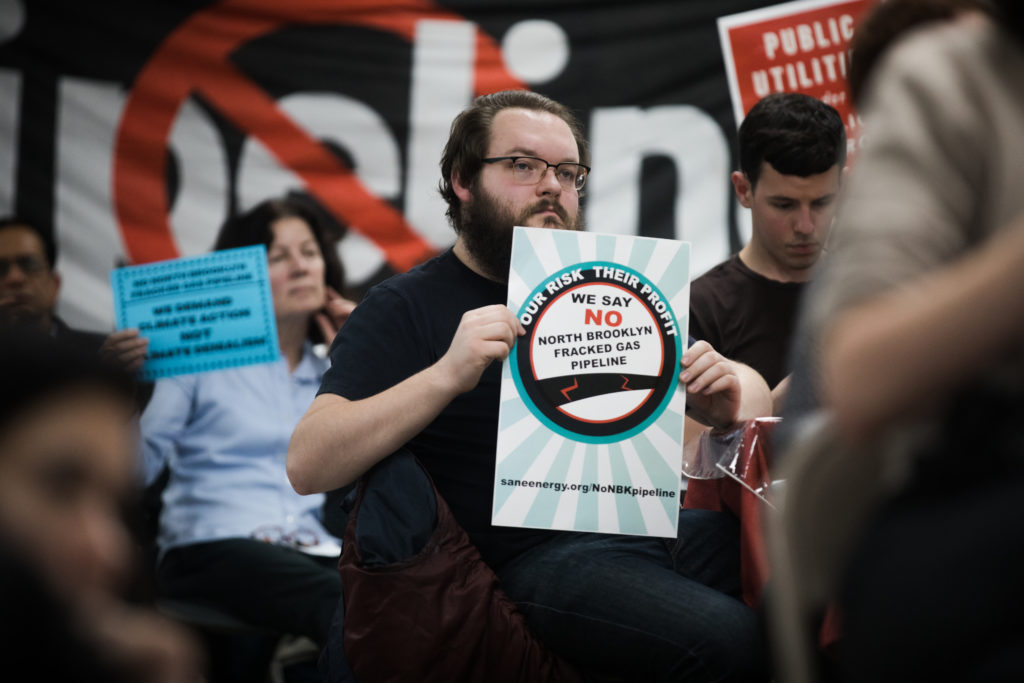Residents protest National Grid’s North Brooklyn gas pipeline
"A project that fills National Grid's coffers."

Dozens of North Brooklyn residents and environmental activists grilled National Grid officials at a meeting last Tuesday over a controversial gas pipeline that the business wants to build underneath Williamsburg and Greenpoint.
The utility company plans to install roughly 14,000 feet of a new underground gas main and is asking customers to foot the $185 million cost through rate hikes for the final phase.
Opponents of the Metropolitan Natural Gas Reliability Project allege that the pipes are not safe, that the process will exacerbate climate change and harm the immediate surrounding environment. They also argued they’ve been left in the dark, with little to no communication from National Grid regarding the work that they’re doing.

Brooklyn Boro
View MoreNew York City’s most populous borough, Brooklyn, is home to nearly 2.6 million residents. If Brooklyn were an independent city it would be the fourth largest city in the United States. While Brooklyn has become the epitome of ‘cool and hip’ in recent years, for those that were born here, raised families here and improved communities over the years, Brooklyn has never been ‘uncool’.